Bottled Water Is Bad Stuff—and the Good Stuff Is Cheaper!
Written by:
John Goss
05/17/2022
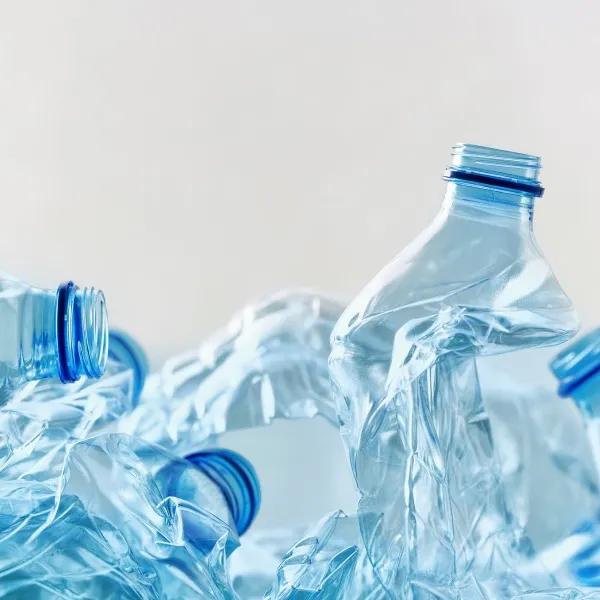
Updated: 09/28/2023
Looking for a different guide? Browse them all HERE.
We get questions about the best type of bottled water or the best water delivery services. People are concerned about the safety of their tap water, and often for good reason (you can look up the scary stuff in your local water in this database).
However, I never recommend bottled water. I have three big concerns about any bottled water or water delivery service:
- Health of the person drinking it.
- Environmental impact.
- Cost.
Read on for a rundown of my concerns, plus my recommendation for how to get the Good Stuff (which is much cheaper than the Bad Stuff!).
Bottled Water Health Concerns
It is very hard to know exactly what is in (or not in) a bottle of water. Some bottled water is no more than minimally filtered tap water. As such, it can have chlorine, chloramine, fluoride and any number of pollutants, depending on the source of the water.
We have no good assurances that the water in the bottle is free of contaminants. As Consumer Reports puts it, “bottled water is regulated in a hodgepodge fashion,” with laws and oversight varying from state to state.
Most bottled water producers say that the levels of contaminants in their water meet U.S. federal standards. But, as you guys all know, just because a product is legal does not mean it’s clean or safe. The regulations that govern water quality standards are influenced by industries that put their profits first, as well as “practical” concerns over the cost of de-contaminating water supplies.
And then there’s the bottles. Almost all bottled water comes in plastic, which can leach toxins into the water. The EWG found that common PET plastic can expose water to more than 80 concerning chemicals.
Environmental Impact of Bottled Water
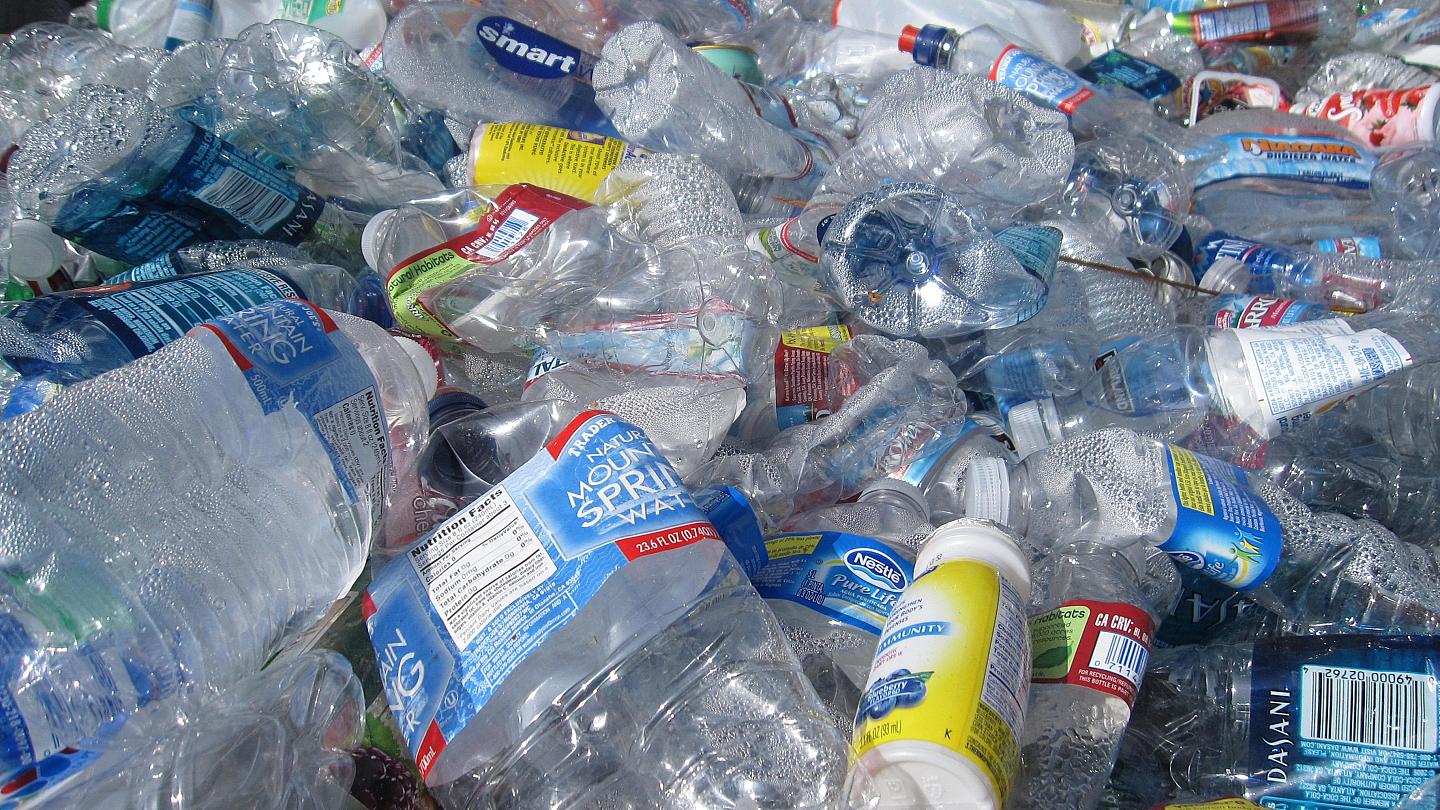
Bottled water has a very high environmental impact. It begins with the creation of the plastic material for the bottles, and continues with the fabrication of the bottles; the extraction, processing, bottling, labeling, and cooling of the water; transportation of the bottled water to consumers; the collection of used bottles; and the disposal or recycling of the bottles.
At multiple points along the way, fossil fuels are required for transportation. When you think about how heavy water is, you realize how much energy is required to move it. And unfortunately, recycling doesn’t erase the impact of all that plastic. In addition to fact that recycling itself consumes energy, most of the plastic never gets recycled. According to the EPA, less than 30% of PET bottles and jars are recycled.
High Cost of Bottled Water
We don’t think of water as being expensive compared to other things we buy, but it is estimated that bottled water is 2,000 times more costly than tap water. That is a high price to pay for something that is no better, or only marginally better, than what comes out of your own tap!
The Solution to the Bottled Water Problem
Now that you’ve read all of this depressing stuff, I’m going to offer up some good news. You don’t have to choose between problematic bottled water and questionable tap water. With a good water filter, you can quickly, easily and cheaply produce lots of water that is cleaner and safer than both tap water and bottled water—and you can taste the difference. Having a supply of filtered water in your kitchen also means that you can cook with it without thinking twice.
You can store filtered water it in glass or stainless steel bottles to take with you anywhere.
How to Choose the Right Water Filter
We’ve been researching water filters for years and you can read our Safe Water Filter Guide here which will take you through the pros and cons of all kinds of filters.
There are several different types of water filtering technologies, and thousands of different water filter products out there. The good ones do involve making an investment that will pay off over time, and there is some low-key maintenance involved.
What follows are our two favorites:
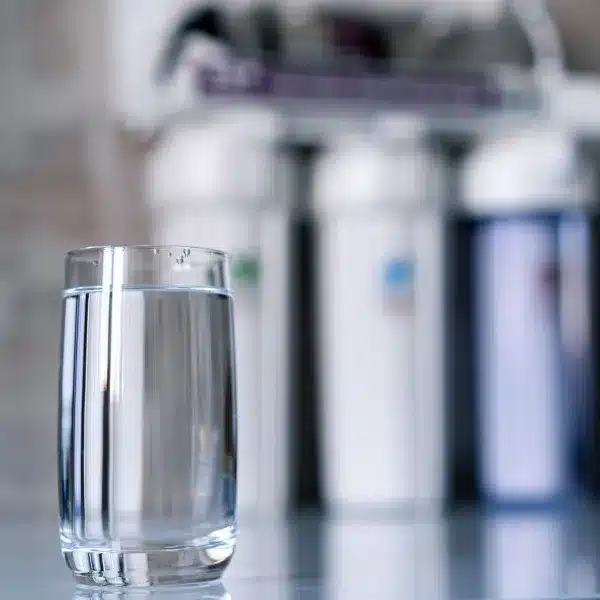
Gimme Clean Water – Under Counter Water Filter System with PFAS/PFOA (Forever Chemicals) Filter
This filter system is installed under your counter, out of sight, and uses KDF/GAC and carbon block filters to effectively eliminate a wide variety of common contaminants. The additional PFAS water filter uses bituminous granulated activated carbon to remove PFAS from your water.
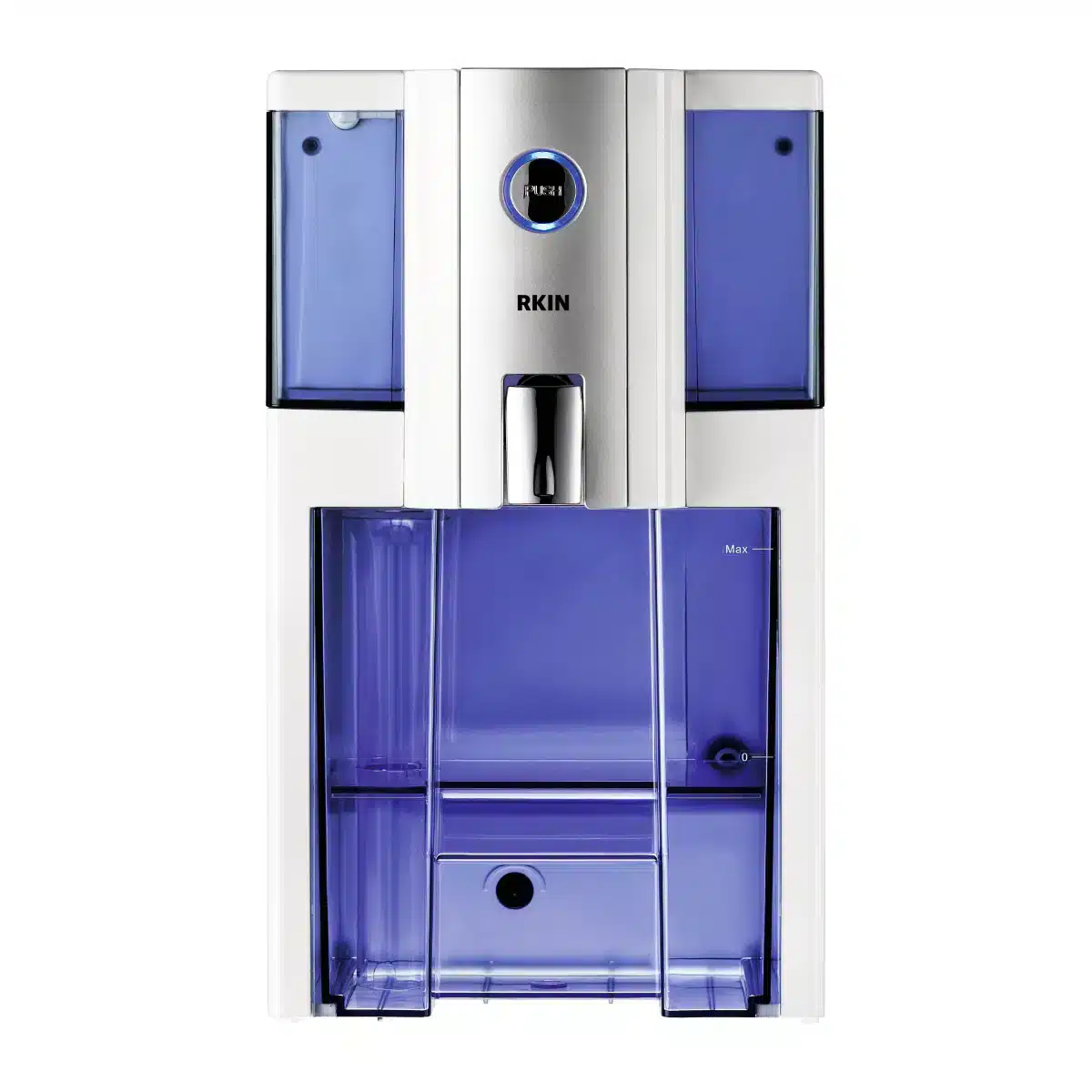
RKIN PuricomUSA Reverse Osmosis Countertop Water Filter System
Zero Installation Purifier purifies water much more efficiently than typical reverse osmosis units, and it also captures all the water typically wasted. That water can be used for other purposes around the house.
If you want help choosing the best water filter for your home, feel free to reach out…
Stay sane,


John, Certified Holistic Health Coach
Note: This article contains affiliate links or sponsored content, which means that if you make a purchase, we may earn a commission. We only recommend products that meet our strict standards for non-toxicity and that we use (or want to use!) ourselves. Thank you so much for supporting the brands that make Good Stuff!
Enjoying this guide?
Join 60K families who rely on our free guides on everything from milk to mattresses! Sign up to get $5 off your first order, access to our ultimate Clean Products Cheat Sheet, and ongoing exclusive access to coupon codes and promotions. Our weekly newsletter is filled with well researched tips and tricks to live a toxin-free lifestyle.
Related Posts
Non-Toxic Air Freshener Guide
42 Ways to Have a Healthy 2024
What is Prop 65?
Best Pitcher Water Filters
-
How long can this water be stored? For example, in case of a water shutdown, I have a bottle for two or three years, is it normal?
-
Hi Martin,
Refrigerated filtered water will last longer, but the longer water sits there is more opportunity there is for things to start growing.
-
-
What about the built in water filters on refrigerators in your home?

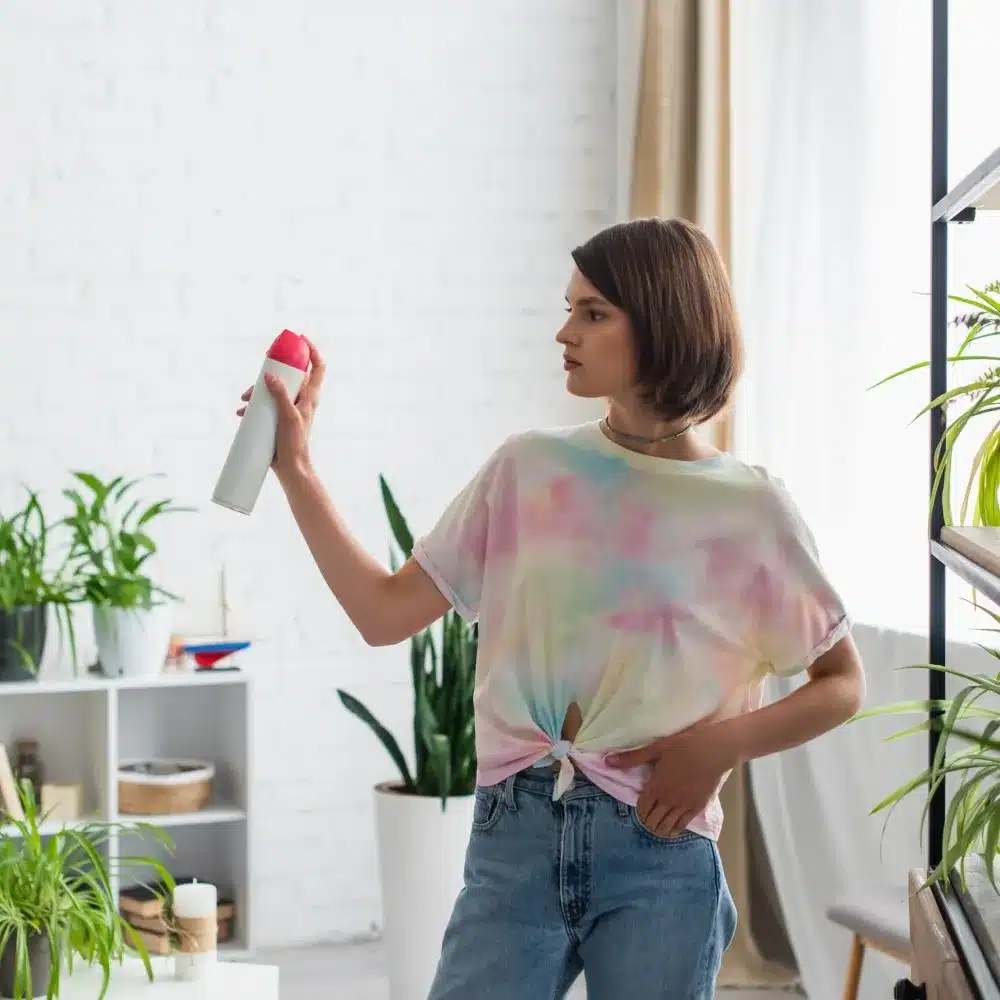

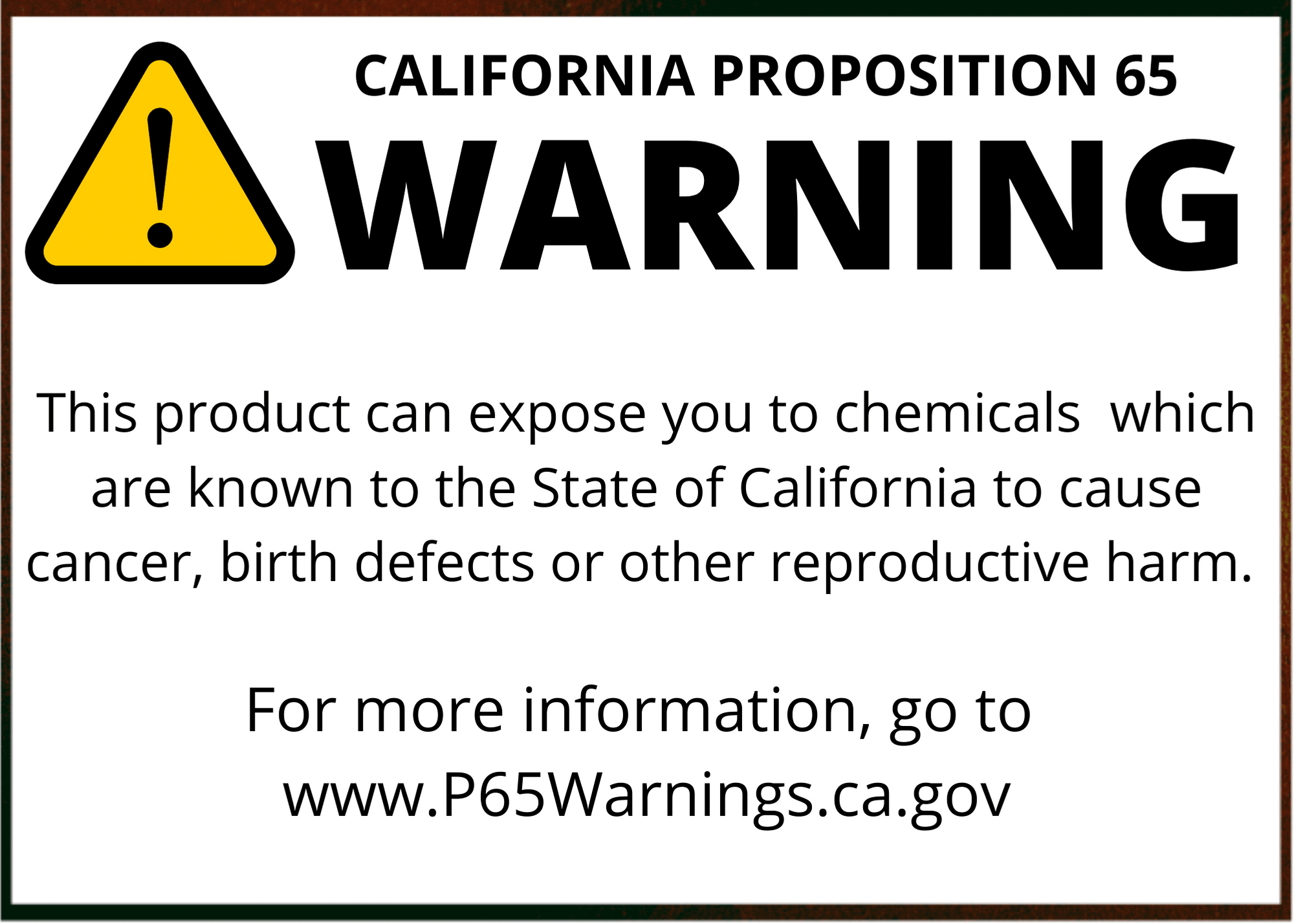
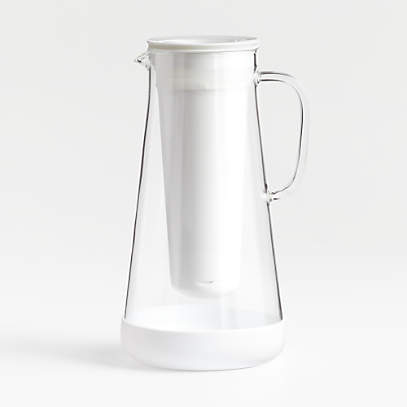
Leave a Reply
You must be logged in to post a comment.